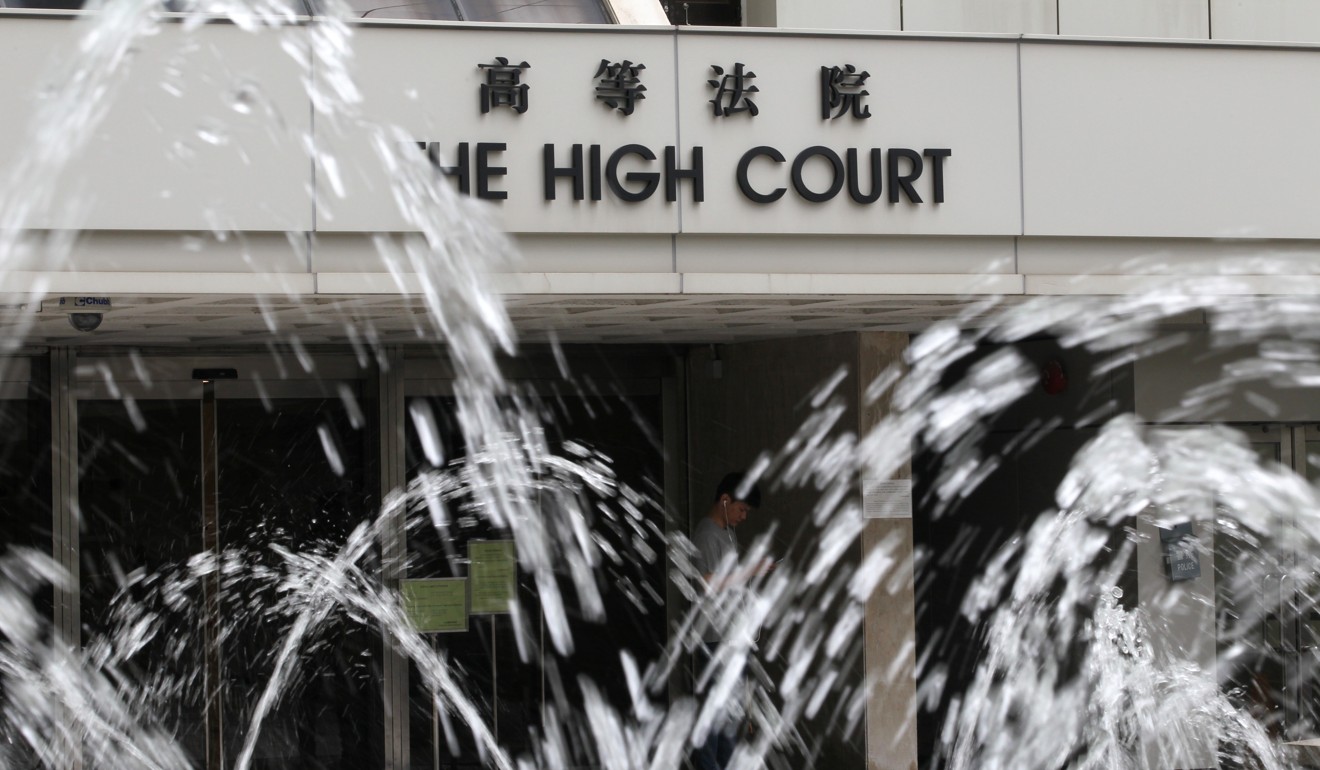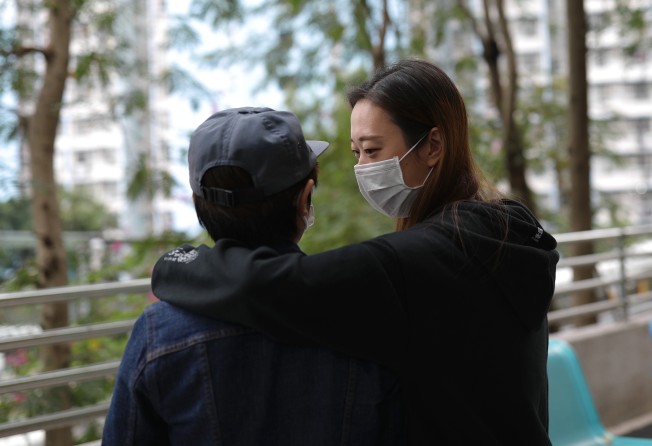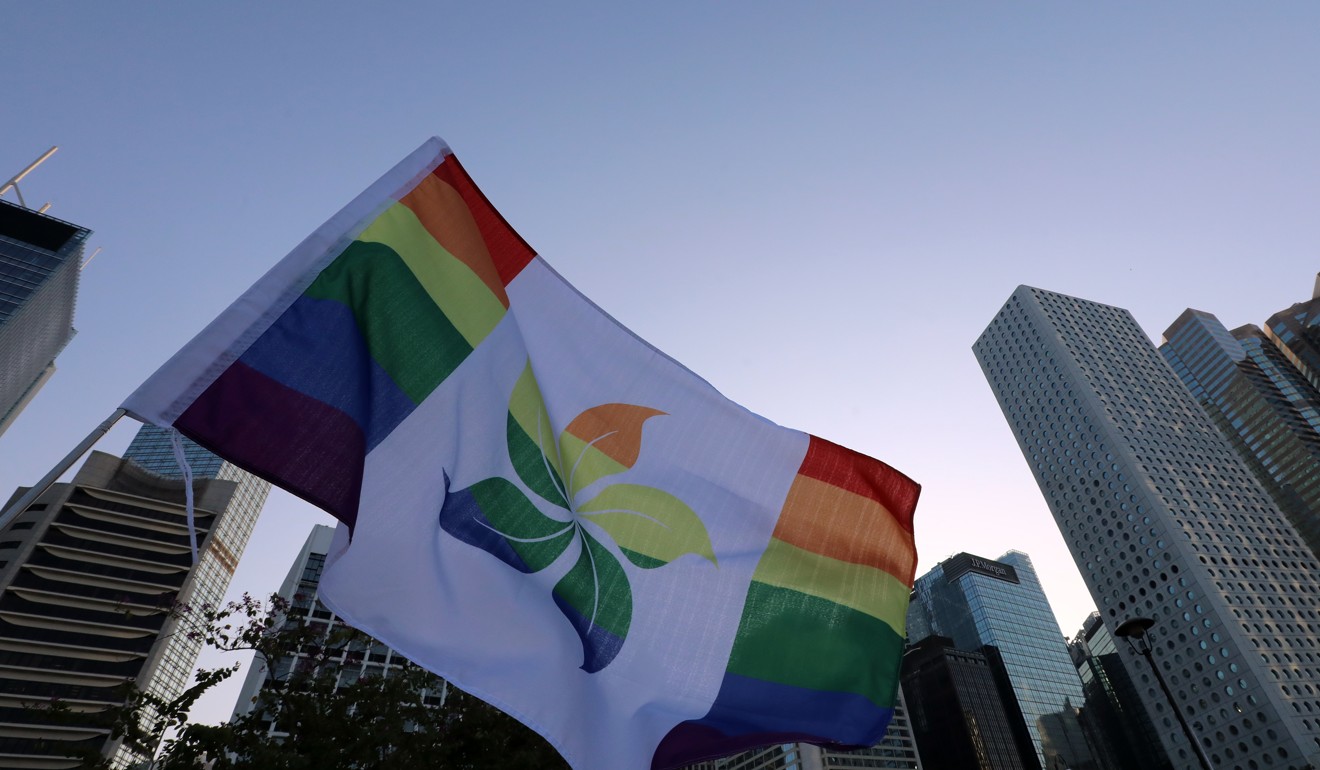
Same-sex couples’ newly opened path to public housing still has a roadblock – getting married in the first place
- Those who need public housing the most cannot afford to travel abroad to get the necessary wedding, LGBT advocate says
- While gay marriage is legal in neighbouring Taiwan, they only allow ceremonies for couples from other countries where that is the case

Mafa Wong Man-lai had reason to be excited when a Hong Kong court ruled last Wednesday that same-sex married couples were eligible for public housing. It would give her and her girlfriend a more affordable option when they were ready to move in together. But then, reality hit home.
To qualify, the couple must first be married, and there is no such option for them in Hong Kong, which does not allow same-sex marriage
Tying the knot overseas was the only viable option, but the bill is not one someone who earns less than HK$10,000 a month waiting tables at a Japanese restaurant can easily afford.
“I wouldn’t say the [ruling] was not helpful. But the hurdle still stands, and it’s quite difficult for us to get married,” the 25-year-old said.

On Wednesday, Hong Kong’s High Court ruled the government’s policy of denying same-sex couples the right to apply for public housing was unlawful and unconstitutional.
Hong Kong law still does not provide for same-sex marriage. But following a string of court challenges in recent years, same-sex marriage is now recognised to a certain extent, including applications for spousal visas, tax declaration, and – since Wednesday – applications for public housing.
The case, the first to contest a government policy that discriminated against low-income, same-sex couples, was brought by 25-year-old gay man Nick Infinger, a permanent resident. The Housing Authority denied he and his partner’s application for public housing as a married couple, even though they are legally married in Canada.
The ruling effectively allowed same-sex married couples to submit their applications as an “ordinary family” rather than a single person, which could shorten their wait for a subsidised flat by years.
A study from Hong Kong University’s Centre for Comparative and Public Law submitted into evidence showed that LGBT individuals would have to wait 12 years longer than heterosexual couples for public housing.
During the trial, lawyers for the government argued that granting same-sex married couples the same housing rights could spread thin social resources for heterosexual families.
But even after the verdict, reactions from the LGBT community have been lukewarm to a degree, with some expressing reservations about how much things will really change.
Tommy Chen, spokesman for the advocacy group Rainbow Action, described an inherent dichotomy in the situation – people who can afford to get married overseas likely would not be applying for public housing in the first place. Those who do need it, meanwhile, cannot afford to go abroad to get married.

In fact, the Housing Authority said they had only ever received one application from an LGBT candidate: Nick Infinger.
Wong has done the maths.
“For the ring alone, it’s going to cost me HK$10,000,” she said. “Then you need the flight tickets and accommodation.
“We probably need to pay for an agent, too, because we don’t know the procedure and how to get a lawyer and whatnot.”
A return flight to Taiwan, which legalised same-sex marriage last year, would only cost about HK$1,000 a head. Unfortunately, the cross-strait jurisdiction does not wed foreigners hailing from countries that do not allow same-sex marriage.
Popular destinations such as Canada, New Zealand and Iceland, meanwhile, can easily cost five to 10 times that much. Wong also thought about invited friends and family.
While not on the top of their agenda, Wong and her girlfriend did hope to get their own space one day, because her mother, who disapproved of the relationship, gave them a hard time whenever her girlfriend visited, she said.
She figured she would save up, and keep public housing as one of her options. “It could save us a lot of rent,” she explained.
For Andy, not his real name, the ruling came too late. The 47-year-old met his boyfriend in 2008, before moving the following year to Taiwan, where his boyfriend pursued his studies.
He applied for public housing in Hong Kong in 2012 under his own name, fearing they might not have a place to stay together upon their return.
But the application was obviously not ready when they returned in 2015. So Andy turned to the private market, where he experienced another form of subtle discrimination.
The couple rented a subdivided flat in Sham Shui Po, but did not dare tell the landlord both of them would be living in it, or that they were a couple.
“We needed to stay low-key,” he said, for fear the landlord may terminate their contract because of their relationship.
Since then, his boyfriend has secured a decent job that has made public housing unnecessary.
Yet even if they were still eligible, he had little hope.
“You are still in their queue. And how long you have to wait for is under their control,” he said.